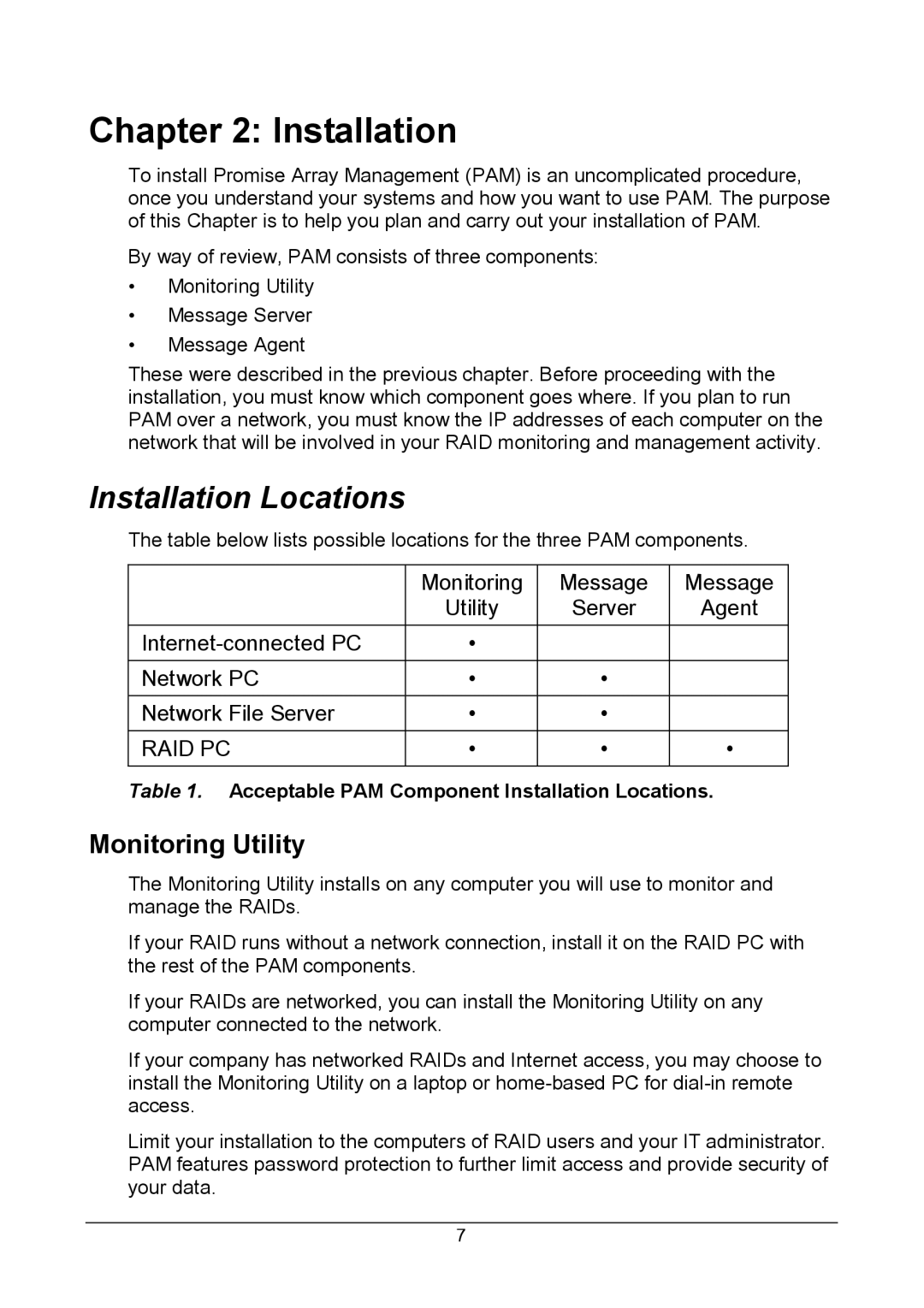Chapter 2: Installation
To install Promise Array Management (PAM) is an uncomplicated procedure, once you understand your systems and how you want to use PAM. The purpose of this Chapter is to help you plan and carry out your installation of PAM.
By way of review, PAM consists of three components:
•Monitoring Utility
•Message Server
•Message Agent
These were described in the previous chapter. Before proceeding with the installation, you must know which component goes where. If you plan to run PAM over a network, you must know the IP addresses of each computer on the network that will be involved in your RAID monitoring and management activity.
Installation Locations
The table below lists possible locations for the three PAM components.
| Monitoring | Message | Message |
| Utility | Server | Agent |
|
|
|
|
• |
|
| |
|
|
|
|
Network PC | • | • |
|
|
|
|
|
Network File Server | • | • |
|
|
|
|
|
RAID PC | • | • | • |
|
|
|
|
Table 1. Acceptable PAM Component Installation Locations.
Monitoring Utility
The Monitoring Utility installs on any computer you will use to monitor and manage the RAIDs.
If your RAID runs without a network connection, install it on the RAID PC with the rest of the PAM components.
If your RAIDs are networked, you can install the Monitoring Utility on any computer connected to the network.
If your company has networked RAIDs and Internet access, you may choose to install the Monitoring Utility on a laptop or
Limit your installation to the computers of RAID users and your IT administrator. PAM features password protection to further limit access and provide security of your data.
7
